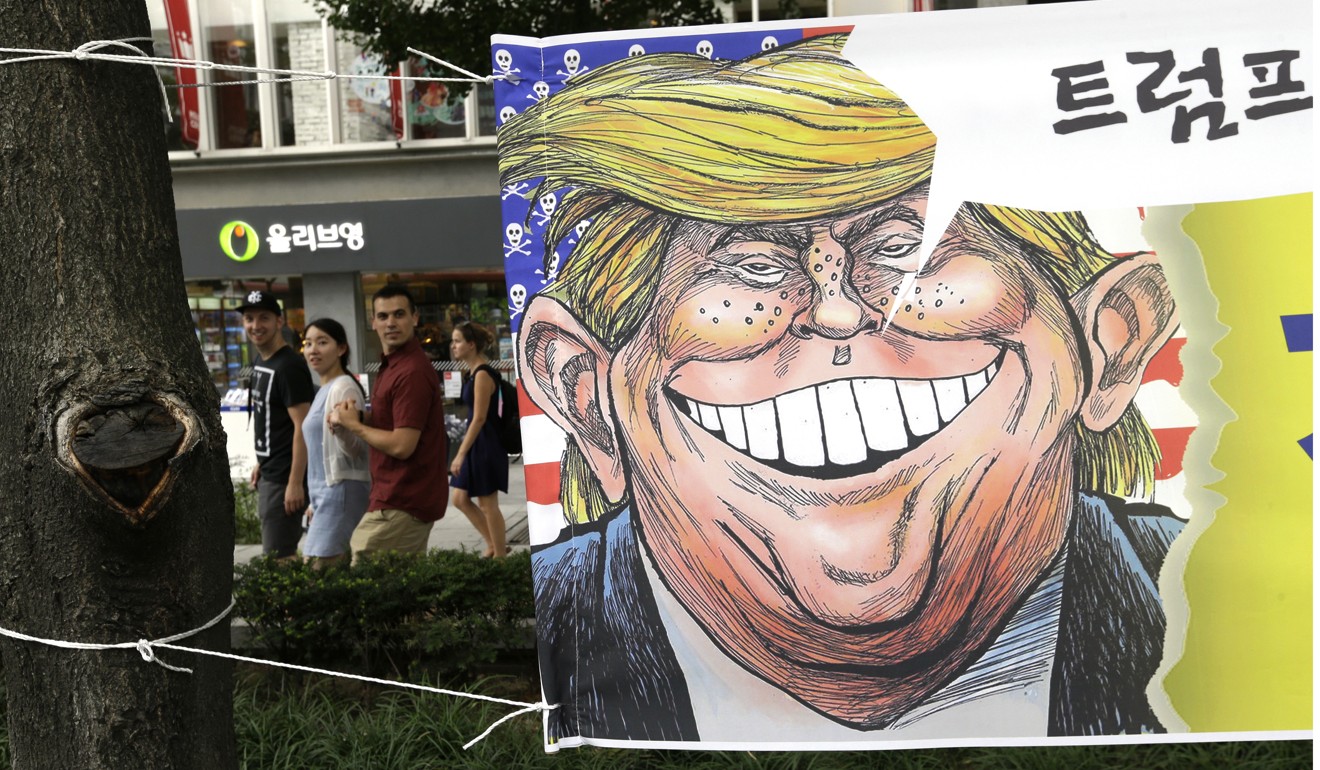
No one, whether in the US or North Korea, has the moral right to drive the world to nuclear war
Tom Plate says in the era of weapons of mass destruction, America’s outdated foreign policy machine must face new realities
Watch: Beijing residents have their say on US vs North Korea
So the problem is not just that Trump as president is in over his head; it’s also that the US foreign policy machine is out of gas. It impresses no one, and its motoring manual is outdated. Even our most seasoned foreign-policy brains lack spark; even if you gifted our president a very good foreign policy book – such as Richard Haass’ A World in Disarray – and make him actually read it, you’d still have this problem: America hasn’t figured out the 21st century and is still operating within the fumes of the 20th. A potential Thucydides Trap is not the biggest worry, the “Back to the Future Trap” is: the US proposes to cope with the future by living in the past.
The problem is not just that Trump as president is in over his head; it’s also that the US foreign policy machine is out of gas
The well-respected Dr Haass is wise on the diminishing utility of sanctions as a weapon; on the need to downplay major-policy rivalries; and on the need to regard the military option with gimlet-eyed scepticism (he is the well-schooled head of the Council on Foreign Relations and former adviser to both president Bushes).
But our times have become revolutionary, and America must face new realities. There is no iron correlation between a so-termed “open society” and a prosperous economy; no future in believing that the US can “give them” (in Haass’ patronising phrase) this or that to encourage and shape global order to its liking; no wisdom in assuming that the desire to avoid confrontation at all costs means by definition appeasement (the overused Hitler-Germany analogy should be declared illegal) – when in this weapons-of-mass-destruction era, such a Machiavellian manoeuvre might prove, at times, the most rational option.
Is war between China and the US inevitable? A new book looks to the past for answers

US expectations about the upside of the bilateral relationship are low. Many analysts seem to accept how little we have achieved as par for the course, as does Haass: “History would have predicted far more friction.” But history is not over just yet and its end is nowhere in sight, unless it runs bang into the nuclear option. This is the prospect that the world might now be facing in the Kim-Trump psychodrama.
Kim Jong-un just wants to stay in power, like any normal dictator - and that is an argument against nuclear war
If Trump must start a nuclear war, at least let us finish Game of Thrones first

Trump’s world view ensures America will never be ‘first’
Imitation here is no form of flattery but a kind of insanity. The morbid mimetics of Kim and Trump are potentially more code-ingrained than suspected. Argued the late, great Girard, who capped his career at Stanford University: “To escape responsibility for violence we imagine it is enough to pledge never to be the first to do violence. But no one ever sees himself as casting the first stone. Even the most violent persons believe that they are always reacting to a violence committed in the first instance by someone else.”
He concluded: “In a truly global world, the renunciation of violent reprisal is bound to become, in a more and more obvious way, the indispensable condition of our survival.”
No one has the moral right to risk plunging the world into nuclear war, no matter how fierce the belief that one is in the right.
Columnist and professor Tom Plate, Loyola Marymount University’s Distinguished Scholar of Asian and Pacific Studies, has a new book on US-China relations: Yo-Yo Diplomacy

